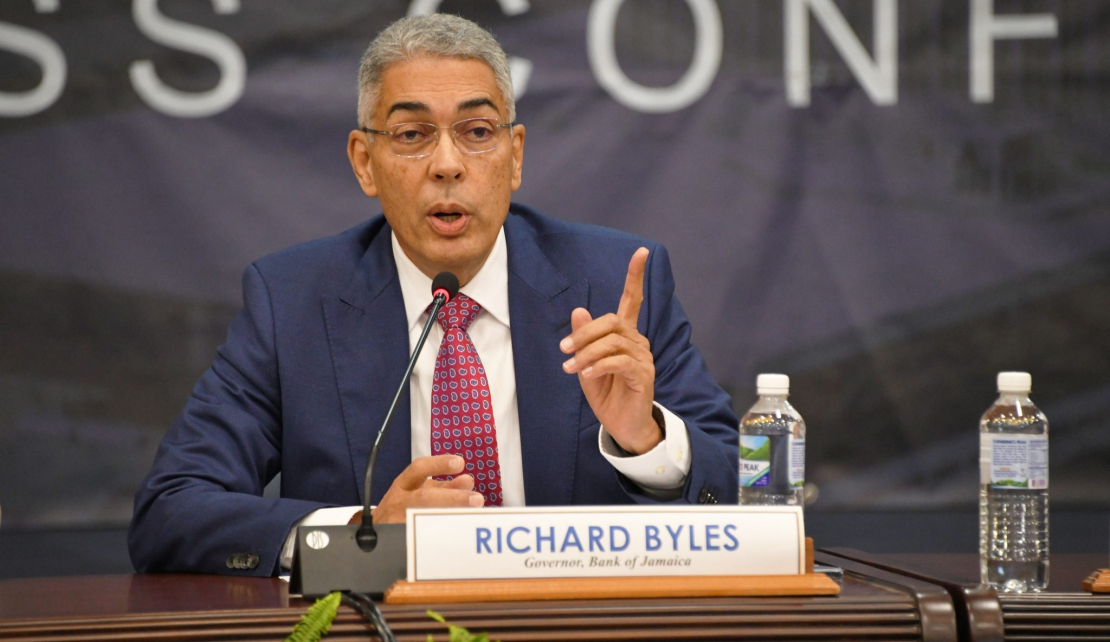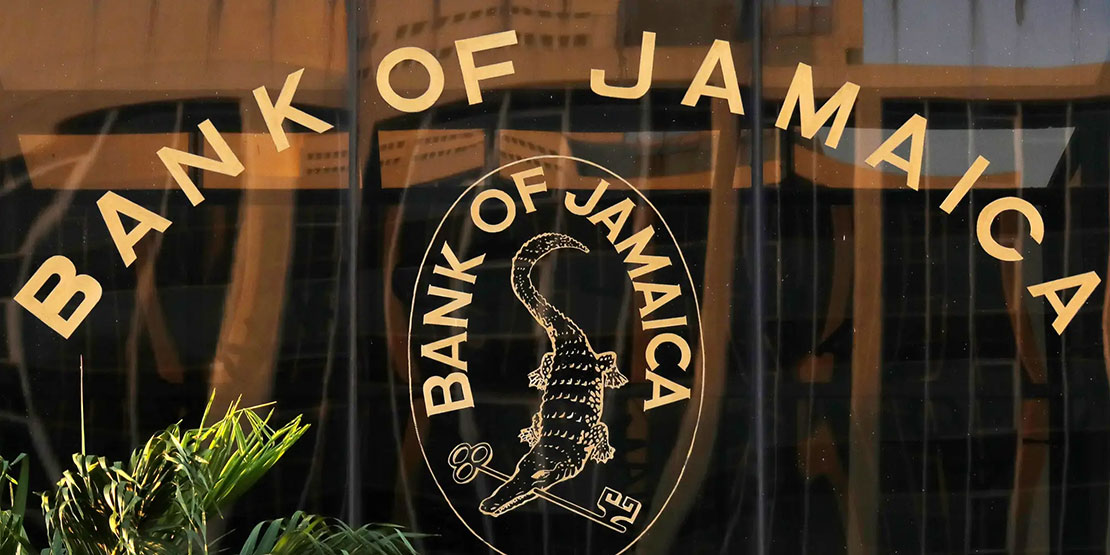JAMAICA | Wages and productivity in the context of inflation control

KINGSTON, Jamaica, August 28, 2023 - There have been spirited responses to my recent statement on the potential threats to inflation at this time, particularly the reference to the possible effect on cost-push inflation of large wage increases, if those increases are without corresponding increases in productivity.
I understand the possible disappointment among segments of the public, especially workers and their representatives, on hearing this assessment at this time by the central bank.
Bank of Jamaica is sensitive to the economic situation of workers, low-income earners and the poor. That is why we work very hard to achieve low, predictable and stable levels of inflation so that Jamaicans are spared a continuous spiral of sharply higher prices. We are encouraged by the progress thus far – the exchange rate is stable and inflation is falling.
It is a reality that even though inflation (which is the general level of price increases measured over a year) has fallen from a year ago, prices themselves have not been rolled back. We empathise with consumers and workers.
The Bank has a mandate to control inflation within a range of 4 to 6 per cent. Our price stability mandate is enshrined in law – the Bank of Jamaica Act. As such we have a responsibility to provide information and analyses on inflation, including the factors that could cause inflation to rise above or below the targeted level.
 Suggestions that the matter of wages and their impact on inflation, are outside the remit of Bank of Jamaica, are therefore not correct. Prices in the economy, of which wages are an important component, are kept under review by the Bank’s Monetary Policy Committee (MPC), which is chaired by the Governor, involves two other senior officials of BOJ, and also includes two independent economic experts.
Suggestions that the matter of wages and their impact on inflation, are outside the remit of Bank of Jamaica, are therefore not correct. Prices in the economy, of which wages are an important component, are kept under review by the Bank’s Monetary Policy Committee (MPC), which is chaired by the Governor, involves two other senior officials of BOJ, and also includes two independent economic experts.
The MPC meets twice every three months (eight times for the calendar year). Decisions and analyses of the Committee are based on the BOJ’s Forecast and Policy Assessment mechanism which involves the examination of trends, model projections, expert judgement, feedback from various sectors of the economy, and scenario analyses of all the major variables that impact inflation in Jamaica.
Several of the MPC Press Statements, Summary of Discussion and Decisions and Quarterly Monetary Policy Statements delivered at the Quarterly Monetary Policy Press Conferences, have commented on the issue of wages and their possible impacts on inflation in the future. The most recent statement on wages and the potential impact on inflation in the future emanated from discussions and analyses at the August 16-17, 2023 meeting of the MPC.
Part of that analysis was that: (a) Inflation has been significantly reduced from a high of 11.8 per cent at April 2022 to 6.6 per cent at July 2023 and there has been material success in controlling headline inflation and core inflation. (b) The uptick in inflation over the past three months (from 5.8 per cent at April to 6.1 per cent at May, 6.3 per cent at June and 6.6. per cent at July), is projected to continue for the remainder of the September 2023 quarter, driven by higher agricultural prices, higher education costs and wage pressures. (c) Inflation is, however, expected to generally decelerate to the Bank’s target range of 4.0 to 6.0 per cent by the December 2023 quarter and with the exception of a few months in 2024, remain there.
There are however, headwinds that could result in inflation rising above this forecasted path. Among these, higher-than-projected future wage adjustments in the context of the tight domestic labour market, second-round effects from the agricultural price inflation, a worsening in supply chain conditions and an elevation of world oil prices, could put further upward pressure on inflation.
It was assessed that inflation could be lower than projected if there is weaker-than-expected global growth, which could reduce domestic demand, and if some projected increases to regulated prices such as bus and taxi fares do not materialise.
At the August 21 press conference, I made the point that in the context of the MPC analysis, if large wage increases translate into increased prices, there will be a cost-push effect on inflation. Jamaica has a history of high cost-push inflation creating inflationary spirals that hurt everybody, especially the poor and low-income persons. Nobody wants a repeat of that situation of inflation continuously being in high double digits.
I also made the point that if wage increases are accompanied by commensurate increases in productivity, such wage increases will not impact the inflation rate; and that generally speaking, wage increases at the level of the current inflation rate will not have a significant inflationary impact.
These statements are not instructions, edicts or wage guidelines. They are not made to influence wage negotiations, as has been interpreted by some persons. Bank of Jamaica, in discharging our responsibility, is providing the economic analysis on the potential impact of wages on inflation and the potential impact of inflation on the economy.
Some persons have suggested that BOJ is somehow applying its analysis unevenly. There has been the assertion that the recent comment on wages applies only to salaries in the private sector, and that BOJ has not made any similar comment on wages in the public sector. This is not so.
In response to questions on the impact of public sector wage increases during the May 22, 2023 Quarterly Monetary Policy press conference, the Bank’s response noted that:
- Wage adjustment to specific groups is not a matter on which the Bank comments.
- All wage increases will impact inflation to some extent.
- Wage increases have a demonstration effect, which means that they could motivate persons who were considering a particular level of increase, to consider a higher level of adjustment.
- Bank of Jamaica assesses all wage increases and the Bank’s statements on the impact of wages on inflation take into account wage increases generally: the minimum wage, wage increase to civil servants, wage increase to Parliamentarians, and wage increases in the private sector and
- That within the context of all prices and their contribution to inflation, the total figure of $1.7 billion reported for Parliamentarians salary increases, as well as projections for overall recent public sector wage adjustments, did not, by themselves, constitute a large numerical impact on inflation. I noted however, that such wage increases will have some impact, even if it’s a demonstration effect of causing other groups of workers to demand higher salary adjustments.
Bank of Jamaica will continue to provide and publicise economic analyses about inflation, the factors that influence current inflation and the potential issues that can cause higher or lower inflation. That is an important part of our job and we hope that all sectors of society will understand. Low, stable inflation benefits everybody.
-30-
